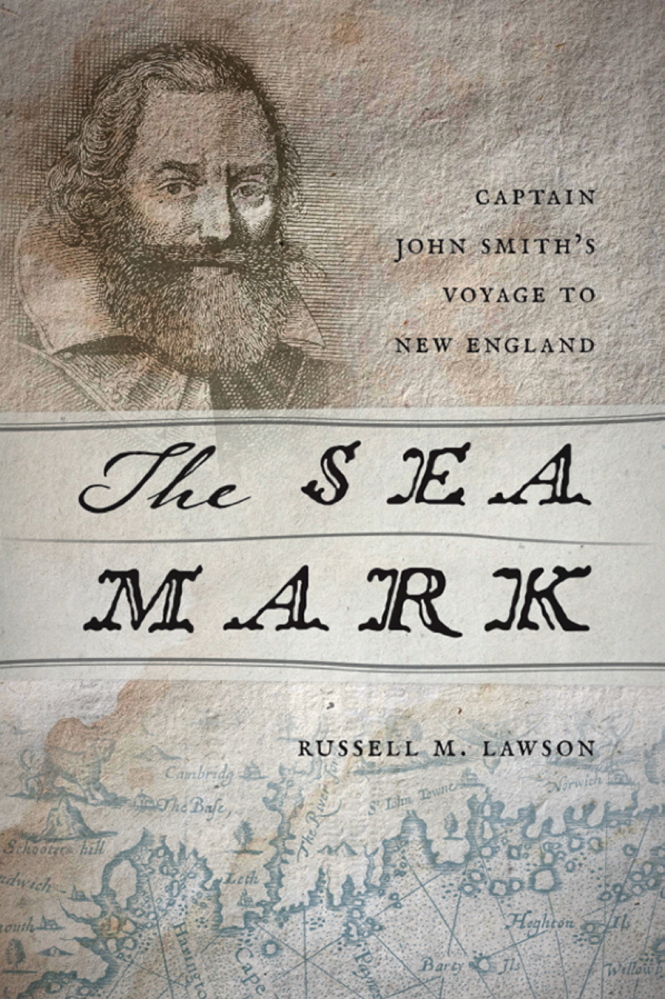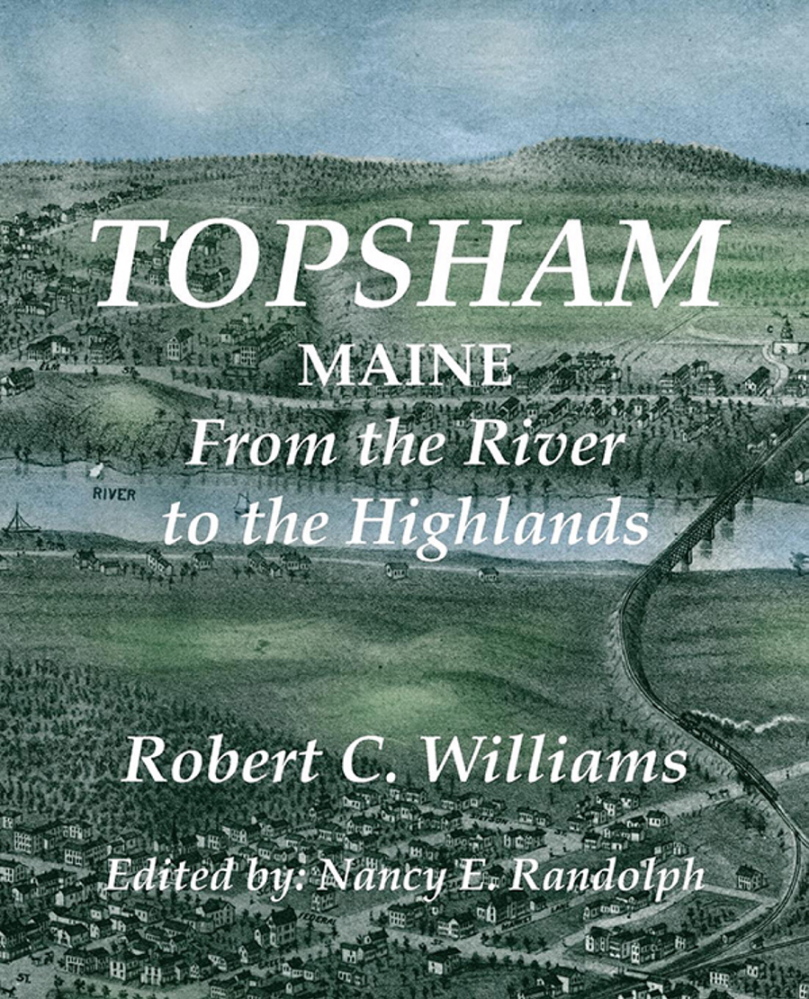THE SEA MARK: CAPTAIN JOHN SMITH’S VOYAGE TO NEW ENGLAND
By Russell M. Lawson
University Press of New England, 2015
248 pages, $29.95
Captain John Smith (1579-1631), 17th-century soldier, adventurer and explorer may be best known for his leadership at the Jamestown Colony in 1607, but he also led an important but often overlooked expedition of exploration of the Maine and New England coasts in the spring and summer of 1614.
“The Sea Mark” is historian Russell Lawson’s excellent nonfiction history of Smith’s New England expedition, as well as a stirring biography of “a violent man living in a violent age.” Smith was a prolific writer and shameless self-promoter who wrote nine books about his exploits between 1608 and 1631. Russell uses Smith’s writing and numerous other sources to tell this remarkable New England story.
“Sea Mark” is an early English term for a person who explores for others and himself, and Smith certainly fit that description. As Russell reveals, Smith was already a famous and respected soldier, and a veteran of Europe’s many religious wars. However, he dreamed of spreading English influence in the New World and establishing his own colony, almost a divine purpose.
Lawson vividly and dramatically describes Smith’s voyage across the North Atlantic to New England, arriving at Monhegan Island with two ships and 45 hearty Englishmen. With Monhegan as his base, Smith and eight men sailed and rowed a 30-foot shallop all along the Maine coast, from Frenchman’s Bay to the Isle of Shoals, exploring rivers (especially the Kennebec River all the way up to Augusta), islands and coastline.
The indigenous peoples he met were “wary of the bearded men who came from across the sea,” but Smith treated them well and they reciprocated, providing food and local knowledge. Smith also made surprisingly accurate maps and charts of the Maine coast and waterways.
Captain Smith got home to England, but he never returned to the New World.
TOPSHAM, MAINE: FROM THE RIVER TO THE HIGHLANDS
By Robert C. Williams
Just Write Books, 2015
143 pages, $24.95
All of Maine’s small towns can boast of fascinating but little-known history. Fortunately, Maine can boast of curious and articulate historians like Robert Williams who tell their stories.
“Topsham, Maine” is Williams’ second small-town history, after his 2006 “Lovewell’s Town,” about Lovell. He is a retired college history professor and author of numerous books on European and Russian history (one was nominated for a Pulitzer Prize in 1980).
Here Williams tells the entertaining and informative history of Topsham, on the mid-coast, across the Androscoggin River from Brunswick. He begins with the early English settlers in 1640, the violent decades of Indian warfare that plagued the New England frontier and the colonial conflicts over land ownership and governance.
He smartly covers Topsham’s economic development from colonial agriculture, timber harvesting and shipbuilding to the numerous sawmills, textile mills, paper mills and manufacturing. And he vividly describes the arrival and work ethic of the workforce of immigrant Ulster-Scots, French-Canadians, Italians, Slovaks and Poles. Most interesting is his discussion of Topsham’s mining industry in the 19th and early 20th centuries. Topsham’s mines produced topaz, beryl, tourmaline and garnet, and its quarries turned out feldspar, a high-silica granite used in pottery and household cleansers. In 1927, Topsham produced one-eighth of all the feldspar in the U.S.
Anecdotes about Topsham’s citizens over the years reveal very interesting characters. Samuel Thompson (1735-1797) was a patriotic rabble-rouser during the American Revolution, rashly starting “Thompson’s War” against the British in May 1775, and was a delegate to the U.S. Constitutional Convention in Boston in 1788. Topsham’s inventors created the seamless stocking, the auto turn signal, a charcoal lighter for backyard barbeques and the healthful “vapor bath” of alcohol and opium, which “produced many satisfied customers.”
Thanks to Robert Williams, another small Maine town’s history will be preserved forever.
Bill Bushnell lives and writes in Harpswell.
Send questions/comments to the editors.




Success. Please wait for the page to reload. If the page does not reload within 5 seconds, please refresh the page.
Enter your email and password to access comments.
Hi, to comment on stories you must . This profile is in addition to your subscription and website login.
Already have a commenting profile? .
Invalid username/password.
Please check your email to confirm and complete your registration.
Only subscribers are eligible to post comments. Please subscribe or login first for digital access. Here’s why.
Use the form below to reset your password. When you've submitted your account email, we will send an email with a reset code.